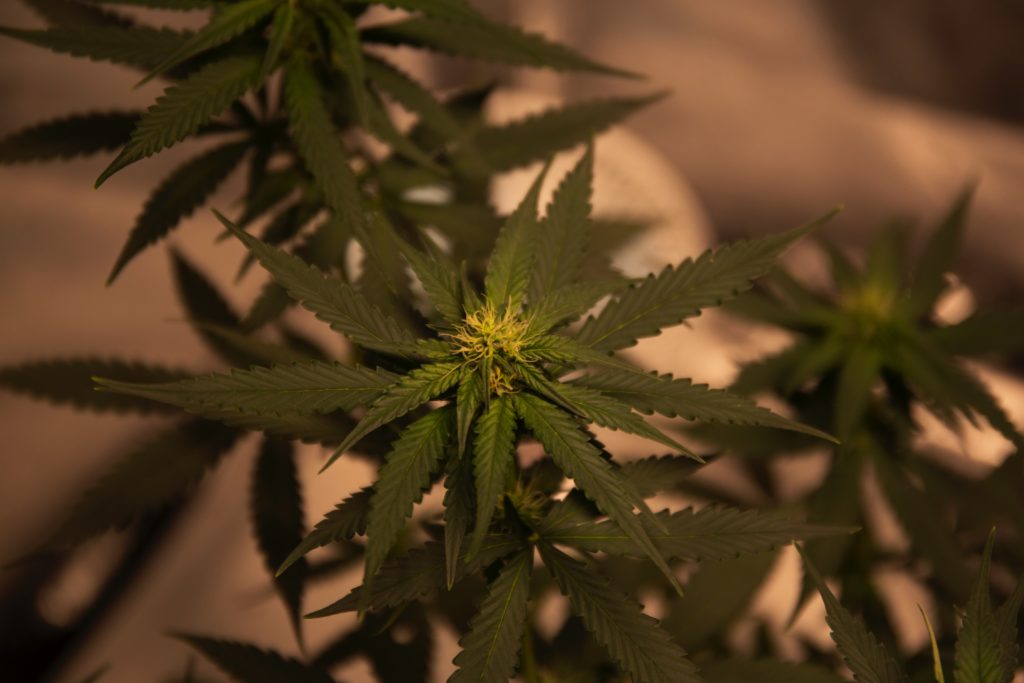One farm in the Brazilian mountains is taking on a huge task, bringing relief to thousands of patients by producing medical cannabis despite all the odds stacked against them. The passion project and NGO behind it are changing lives, and facing down regulatory hurdles, social prejudices, and Bolsonaro’s restrictive regime to bring medical cannabis products to patients throughout the country.
Brazilian NGO grows medical cannabis to help epilepsy patients


Surrounded by barbed wire and an electric fence, cannabis plants flourish in the bright sunshine of a farm in a mountainous region outside Rio de Janeiro.
But this farm has nothing to do with drug trafficking. It belongs, in fact, to a pioneering Brazilian NGO involved in the production of medical cannabis to help patients suffering from seizures.
Follow their story, and many more from the world of medical cannabis and hemp news, by downloading our Hemp.IM companion app today!
A personal project to bring Brazilian patients medical cannabis
Margarete Brito, a lawyer by training, started growing cannabis several years ago to relieve the seizures of her daughter Sofia, now 12, who suffers from epilepsy.
After seeing her condition improve, Brito decided to help other Brazilian patients gain access to cannabis as well. So she founded the Medical Cannabis Research and Patient Support Association, or Apépi, which produces homemade cannabis-based therapeutic oils to help patients with conditions similar to her daughter’s.
This work has taken a lot of effort, as cannabis cultivation remains illegal in Brazil.
“If we follow the letter of the law, there is nothing that allows us to do it,” Brito told AFP.
Cannabis is a complicated crop in Brazil
Margarete Brito and her husband, Marcos Langenbach, were able to obtain an unprecedented judicial approval to grow cannabis for medical purposes in 2016 however.
Today, their farm – about a two-hour drive from the Brazilian metropolis – has 2,000 plants growing to help patients with severe autism, multiple sclerosis and epilepsy.
And despite initial suspicions and misgivings from some, Brito says the organization has support in Brazil. “We have real social legitimacy. That’s what protects us,” Brito said, “though people still have prejudices.”
On a recent visit to the farm, which is protected by an electric fence and barbed wire, agricultural engineer Diogo Fonseca made his way among marijuana plants growing in large black pots and marked with the names of their different varieties: Purple Wreck, Schanti, Doctor, Harle Tsu, Solaire, CBG.
These plants are used to produce therapeutic oils that meet the individual needs of each patient, depending on whether they require a higher or lower dose of cannabidiol (CBD), a non-psychotropic substance with a relaxing effect.
Using a handheld microscope, Fonseca examines each plant to determine the ideal time for harvesting.
In April, armed police with sniffer dogs raided the farm after someone who had been working on renovating his lab reported Apepi to the authorities.
“A lot of people are prejudiced,” said Brito. “We explain to everyone how our project works, but this person thought we were drug dealers and was informed against us,” said Manoel Caetano, director of the farm.
The police eventually realized the farm was a medical cannabis plantation, apologized and left, according to Brito.
More accessible cannabis for Brazilian patients with Epilepsy or other medical conditions
Apepi has forged partnerships with respected scientific institutions, such as the Fiocruz Foundation and the University of Campinas. And it has grown fivefold in the last two years and now has 1,500 members.
Among them is Gabriel Guerra, 19, who suffers from a severe form of autism and cerebral palsy. When he was eight years old, he had 60 seizures a day. “But when he started taking the personalized oil” – a few drops three times a day – “the attacks stopped. He started to have more independence, to look for ways to communicate,” explained his father Ricardo Guerra.
Thanks to Apepi, the products have become much more accessible to patients: 150 reais ($28) for a 30 ml bottle, while imported products can cost from 600 to 3,000 reais ($113 to $565).
Apepi is now awaiting a court ruling that they hope will allow the farm to increase production to 10,000 plants from next year.
But the group is not very optimistic about the prospect of medical cannabis being legalized any time soon – President Jair Bolsonaro has already indicated that he would veto a bill being debated in Congress.
(Featured image by Washarapol D BinYo Jundang via Pexels)
DISCLAIMER: This article was written by a third party contributor and does not reflect the opinion of Hemp.im, its management, staff or its associates. Please review our disclaimer for more information.
This article may include forward-looking statements. These forward-looking statements generally are identified by the words “believe,” “project,” “estimate,” “become,” “plan,” “will,” and similar expressions. These forward-looking statements involve known and unknown risks as well as uncertainties, including those discussed in the following cautionary statements and elsewhere in this article and on this site. Although the Company may believe that its expectations are based on reasonable assumptions, the actual results that the Company may achieve may differ materially from any forward-looking statements, which reflect the opinions of the management of the Company only as of the date hereof. Additionally, please make sure to read these important disclosures.
First published in news-24, a third-party contributor translated and adapted the article from the original. In case of discrepancy, the original will prevail.
Although we made reasonable efforts to provide accurate translations, some parts may be incorrect. Hemp.im assumes no responsibility for errors, omissions or ambiguities in the translations provided on this website. Any person or entity relying on translated content does so at their own risk. Hemp.im is not responsible for losses caused by such reliance on the accuracy or reliability of translated information. If you wish to report an error or inaccuracy in the translation, we encourage you to contact us.



Comments are closed for this post.